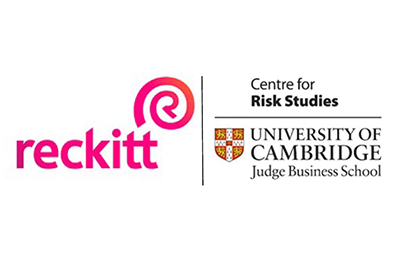Reckitt today announces its strategic partnership with the Cambridge Centre for Risk Studies (CCRS) as it progresses its sustainability ambitions.
The new partnership between CCRS and Reckitt advances Reckitt’s ongoing commitment to deliver on the Paris Accord and its ambition for carbon neutrality by 2040 while delivering growth and long-term shareholder value. Its strategy for managing climate change includes action across the entire footprint of its organisation.
The CCRS is working with Reckitt to support its climate change activity with analytics, including:
- A detailed assessment of leading climate science to test and inform activity within changing patterns of extreme weather, and different scenarios of transition risks including regulatory change and consumer sentiment trends.
- Strengthening Reckitt’s financial quantification of these impacts, by mapping Reckitt’s global business activities and the potential consequences of future changes.
- Analysis of potential ways to evolve the business to achieve its goals for the Paris Accord and net-zero ambitions.
Reckitt is the official Hygiene Partner for COP26, and is playing its part in tackling climate change by setting science-based targets to reach net zero emissions. In June 2020, Reckitt committed to accelerate the delivery of the Paris Climate Change Agreement and RE100, with the goal of achieving 100% renewable electricity across its operations by 2030 as part of an ambition to be carbon neutral by 2040.
David Croft, Global Director of Sustainability, Reckitt, said: “We selected Cambridge because of its experienced, comprehensive and science-based approach to assessing and addressing climate-related risks, opportunities and metrics. Our partnership accelerates our integration of climate-related risks and opportunities into our existing Governance, Strategy, Risk Management, and Reporting framework.”
“Reckitt’s approach to identifying and managing our climate risks will support and strengthen their mitigation and adaptation activities, their reporting and their investor disclosures. Our science-based quantitative frameworks aim to provide further transparency between businesses and their key stakeholder groups.” Dr Andrew Coburn, Chief Scientist, Cambridge Centre for Risk Studies.


